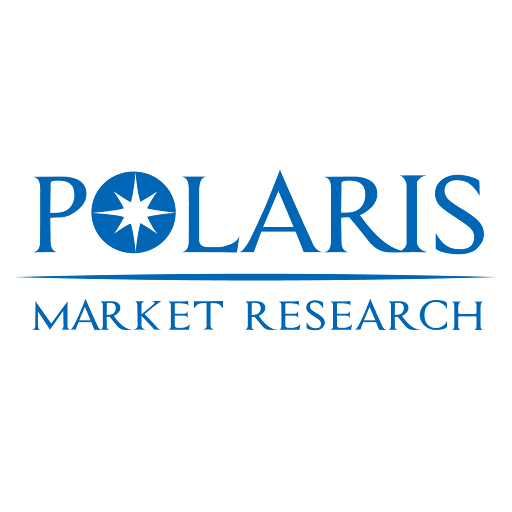Innovation Across Power Solutions Accelerates Demand in the Data Center Power Market

Anchored to your assumption of USD 20.43 billion in 2024 and 13.3 percent CAGR from 2025 to 2034, the global data center power market is increasingly shaped by country-level leadership—in the U.S., China, Germany, and select innovation hubs. National policy impact, R&D leadership, market share concentration, and strategic positioning of key players are driving the evolution of how power gets provisioned, managed, and monetized in data centers.
In the United States, data center power demand is surging, especially with AI, cloud, and edge infrastructure expansion. National policy levers—grid incentives, tax credits for battery storage and renewable integration, and federal building efficiency standards—impact how power infrastructure is architected. In China, state-driven digital infrastructure development, localized manufacturing of power electronics, and strategic emphasis on self-reliance in critical infrastructure make it a powerhouse market. China is already a dominant production base for UPS, battery systems, and BESS modules, often funneling power equipment for both domestic build and export. In Germany, given its advanced industrial and digital ecosystem, R&D in high-efficiency power conversion, modular systems, and integration with Industry 4.0 frameworks is particularly strong. Germany also benefits from EU harmonized standards and regulatory drivers favoring efficient, low-carbon data center power infrastructure.
Leading global players are anchoring themselves in country-level strategies with R&D, manufacturing, and project execution aligned to national contexts. Schneider Electric (France) invests heavily in European R&D and European power platform labs while building U.S. and Chinese manufacturing hubs. ABB has a strong presence in Europe and China, and is expanding power electronics and modular systems geared toward data center clients globally. Eaton is leveraging U.S. engineering and service networks for power distribution, UPS, and control systems. Vertiv invests in localized module factories and customization to meet country-specific codes and standards. Huawei (China) focuses on integrated, cost-efficient power modules tailored for domestic hyperscale and expanding into Southeast Asia and Latin America. These firms engage in mergers, joint ventures, expansions, and technology differentiation to embed themselves in national ecosystems, reinforcing strategic positioning and market share concentration.
From the driver perspective, countries with strong digital policy mandates, cloud expansion incentives, AI strategies, and infrastructure stimuli are pushing data center power investment. The proximity of R&D leadership in key geographies (U.S. silicon valley clusters, Chinese power electronics hubs, German engineering clusters) gives national players competitive edges in innovation. Market share concentration arises as leading players lock supply relationships within countries, gain preference in national procurement frameworks, and centralize regional power deployments. National policy impact—whether via tax incentives, renewable mandates, or grid modernization grants—can tip adoption curves for modular power, co-generation, or battery storage solutions.
Read More @ https://www.polarismarketresearch.com/industry-analysis/data-center-power-market
Restraints at the national level include cross-border trade barriers, technology export controls, local content requirements, standards divergence, and permitting regimes. For example, U.S. export controls on advanced semiconductors may limit certain power electronics export. China’s technology licensing or joint venture requirements for foreign players can discourage direct investment. In Europe, country-to-country regulatory variation and multi-tier permitting slow deployment. Currency volatility, logistics costs, and compliance certification burdens further complicate cross-national strategies.
Opportunities abound in country-scaled deployment and embedded positioning. Global players that anchor power manufacturing and R&D in key countries can scale regionally while customizing to local codes. They can influence national standards, partner with utilities, and integrate with sovereign infrastructure modernization plans. National power-as-a-service offerings (e.g., leasing UPS + BESS) can be rolled out country by country. Strategic positioning for supply chain control (battery cell production, power electronics packaging, semiconductor integration) in high-demand nations is also a critical opportunity.
Emerging trends at the country and competitive level reinforce concentration and differentiation. We see national hubs of power technology innovation—U.S. for battery + software, China for module manufacturing scale, Germany for high-efficiency conversion. R&D leadership is trending toward cross-country collaborative labs (e.g. Sino-European power innovation centers). Market share concentration is intensifying: global leaders increasingly dominate flagship data center deals, modular systems, and retrofit programs in leading national markets. National policy impact continues to shape demand—many countries now propose data center power efficiency standards, renewable integration mandates, and grid incentives that align with modular power adoption. Strategic positioning by top players to lock dominant positions in national power markets will directly influence their global power infrastructure footprint.
Dominant players by global data center power market share:
- Schneider Electric
- ABB
- Eaton
- Vertiv
- Huawei
More Trending Latest Reports By Polaris Market Research:
Remote Workplace Services Market
Top Bioreactor Manufacturers in 2024: Simplifying Chemicals and Biological Reactions
U.S. Wet Process Equipment Market
- Business
- Art & Design
- Technology
- Marketing
- Fashion
- Wellness
- News
- Health & Fitness
- Food
- Παιχνίδια
- Sports
- Film
- Κεντρική Σελίδα
- Literature
- Music
- Networking
- άλλο
- Party
- Religion
- Shopping
- DIY & Crafts
- Theater
- Drinks
